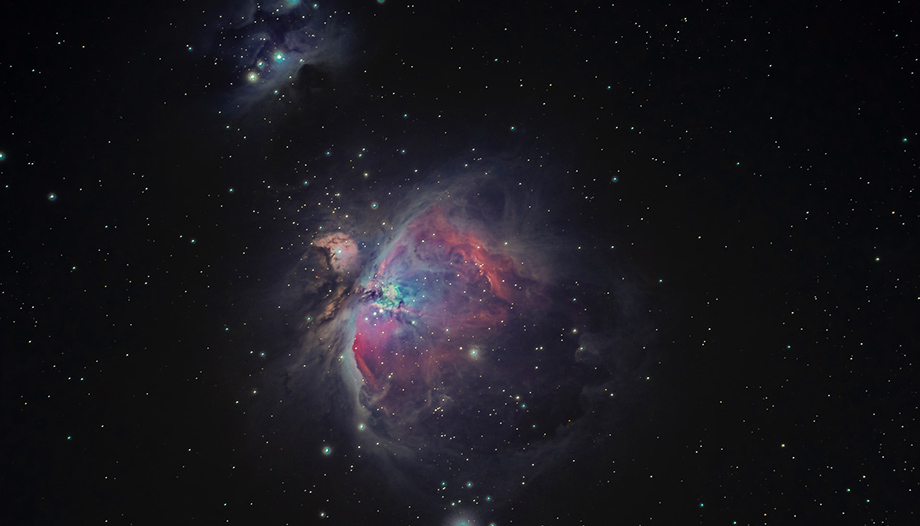This is the question posed in the title of one of his books (Rialp, Madrid 2020) by the mathematician, emeritus professor of philosophy of science at Oxford University, John C. Lennox.
He affirms that sometimes some people confuse the true God with mythological divinities, with gods fabricated to "...".plug the holes". That is to say, religion would be the explanation of what we do not understand, until science arrives and explains it; and, then, there are no more magical gods.
But, in reality, the revealed God is the one who created everything, not only what we do not understand: he is the one who gives reason for everything that exists. Faith is not a superstition to fill in the gaps, but the first foundation and the ultimate meaning of life. The question "who created god?" serves for idols, mere unreal deformations, not for the true uncreated God. He is the cause of all that exists.
Materialists pretend that there is an unavoidable alternative between science and God, but in reality this image of God that they propose is nothing more than a caricature. Moreover, their science claims to be reductively the only consistent and verifiable knowledge, capable of explaining everything, excluding other sources of knowledge; and this in an aprioric and dogmatic way, with no scientific basis to support it.
Certainly, scientific explanations are valid, but partial and limited. There are other types of plausible and complementary explanations. Wise scientists avoid the absurd arrogance of pretending that their knowledge and method is the only acceptable one. There are other valid and necessary approaches and perspectives.

The book
Indeed, science does not answer questions of meaning or of anthropology and ethics; it cannot do so because its method of working does not allow it. Philosophy, morality and culture, on the other hand, based on metaphysical logic, on the best traditions of peoples and on common experience, provide answers to the search for meaning in human life and action, including scientific activity. A science without openness to human and divine wisdom becomes a perverse and terrible power. On the other hand, good humanism rightly directs the meaning of science to the service of man.
The great deception of exclusionary positivism is the claim that the laws of nature explain the very reality of nature. This is the case, for example, with gravity, energy, time: science investigates their structure, but does not reach their essence and ultimate cause in the universe as a whole. For science explains at a certain level. But it must have humility and openness to other sources of knowledge, because to affirm that science is the only valid knowledge is false, ridiculous and unscientific.
Science explains at a certain level. But it must have humility and openness to other sources of knowledge.
José Miguel Granados
Moreover, it is also wise to welcome the supernatural revelation of the personal God who communicates with mankind. The Christian faith is not a mere fiction contrary to the evidence: it is not blind but luminous. In fact, it offers abundant signs and proofs for belief, such as miracles, prophecies, the logic and beauty of Christian doctrine, which satisfies the deep desires of the heart, the admirable figure of Christ, the holiness of so many believers' lives, the human and civilizational fulfillment brought about by the Gospel.
The reductionism of materialistic and atheistic scientism, which claims that the world lacks purpose and creative intelligence, leads to chaos or absurdity. However, genetic codes, with billions of signs in perfect order, speak of a superior ordering mind. Chance or randomness as an explanation of nature is irrational, illogical and impossible. There is an intelligent design that refers to a personal Designer. There is a language in creation that refers to its transcendent Author.
Atheistic and materialistic scientists claim to trust their brain as a mere organic function, but paradoxically they do not believe in a creative Reason at its origin. Human rationality is also evidence of a personal creative Reason as its cause. Without a God who is the supreme Reason of nature, who is the Mind of the universe, science does not emerge from pure irrationality, and is doomed to determinism, fatality or meaninglessness.
As stated in the prologue of St. John's Gospel, "in the beginning was the Word", the Logos, which is the divine Reason and the original Meaning of the cosmos. "By him all things were made." In all creatures he leaves the imprint, the imprint of his harmony and balance, according to a purpose, to an original intelligent design. He is the key to the cosmos and to history.
The sciences discover and describe the laws of nature, with great efforts and achievements, but also with enormous limitations. On the other hand, God creates those laws, that order: he is their cause. In short, true science buries the pretendedly scientific materialistic atheism, because to do science requires the personal God-eternal and wise, all-powerful and good-as the foundation of rationality and the order of nature.








